Keep Your Pets Safe & HealthyAwareness is always key in prevention of emergencies, especially in the case of poison emergencies with our pets. In 2012, almost 91 percent of calls to Pet Poison Helpline involved calls involving dogs, and about half of those calls were for dogs that ingested human medications. It’s clearly wise to keep medications out of their reach, but there are many other common household substances that are toxic to dogs. Other common substances that are toxic to dogs include human foods, insecticides, rodenticides, and dietary supplements and vitamins. 43 of calls to Pet Poison Helpline in 2012 were for dogs that ate over the counter (OTC) or prescription medications. The majority of them involved antidepressants such as Prozac, Paxil, Celexa and Effexor, and common OTC drugs containing acetaminophen and NSAIDs, which can cause serious harm when ingested. Whereas some dogs can be prescribed antidepressants and other medications, they metabolize things differently than we do so it is best to keep our human medications well away from pet supplies and pet medications. 16 percent of calls were for dogs that helped themselves to foods that are safe for humans, but poisonous to dogs. The most common were dogs that have ingested chocolate. Dark chocolate is the most dangerous since it contains high amounts of theobromine- a relative of caffeine that can be deadly. Xylitol, a sweeter in sugarless gums and candies, is also incredibly dangers and can be life threatening, even if ingested in small amounts. Raisins and grapes are often overlooked by dog owners as potentially dangerous, but they are extremely toxic and can cause kidney failure in dogs. Other foods like macadamia nuts can cause temporary hind limb paralysis in dogs. Ingestion of too much garlic or onion can destroy red blood cells, causing anemia. Yeast based dough is also toxic for dogs. The lump of unbaked dough will expand in the stomach causing severe abdominal distention. As the yeast cells ferment, blood ethanol can rise to toxic levels as well. It’s always best to refrain from sharing table scraps with our pets, but if you absolutely must, be sure to know what is in it to avoid a potentially poisonous situation. 7.5 percent of calls were for dogs who ingest insecticides in the form of sprays, granules, insect bait stations and more. While many household insecticides are well tolerated by dogs, certain potent types such as organophosphates, found in rose care products, can be life threatening. 6.5 percent of calls for dogs, were dogs that had gotten into mouse and rat poisons, which contain various active ingredients that can be harmful to dogs. Depending on the type ingested, poisoning can result in moderate to severe symptoms. Anywhere from uncontrolled bleeding, swelling of the brain, kidney failure and seizures. Only one type of mouse poison has an antidote to counteract the effects of the poison. The rest, unfortunately, have no antidote and are more difficult to treat. There is also potential for relay toxicity, meaning that pets and wildlife can be poisoned by eating dead rodents that were poisoned by rodenticides. 5.5 percent of calls concerned dogs that had ingested dietary supplements and vitamins. While many items in this category such as Vitamins C, K, and E are fairly safe, others such as iron, Vitamin D, and alpha-lipoic acid can be highly toxic in overdose situations. Additionally, sugar free multivitamins containing Xylitol can be lethal to our precious fur babies. Final Thoughts:Keeping chocolate and medicine away from dogs seems like a no brainer, but there are also less obvious threats to be mindful of around our pets. Be cautious with cleaners. Some cleaning products can cause burns in your pets mouth or esophagus, while others can lead to kidney or liver damage. To keep your pet safe, store all cleaning solutions out of their reach and keep animals out of the way when cleaning and rinsing. Also practice prudent planting. Identify plants in your house and yard and remove those that can cause severe or life threatening toxic situations. Plants like oleander, yew, sago palms and lilies can be especially toxic. Always check to see if plants are toxic before landscaping. Cocoa bean mulch can cause vomiting and diarrhea in pets. Be sure to check all aspects of your potential garden including mulches and fertilizers. If you think your pet has ingested something dangerous, there are many 24/7 veterinary helplines. Call one immediately to figure out how to best help your pet, time is critical in these emergencies. There are also handy mobile apps to help you be App-solutely sure your pet isn’t in danger. ASPCA has a handy mobile app that can calculate severity of toxicity of chocolate based on weight, amount and type ingested as well as other handy tools. The ASPCA Animal Poison Control Center (APCC) is there for you, 24 hours a day, 365 days a year. If you think your pet may have ingested a potentially poisonous substance, call (888) 426-4435.
Here's to being aware of dangers to our animals so we can better keep them safe, healthy, and happy! |
Lourdes MassengillI love grooming and dogs are my life :-) Archives
November 2021
|
|
|
We offer 10% off every day for booking at least 6 weeks early,
as well as 10% off for seniors and military!
Call us today!
407-332-4400
© Copyright 2022 D'tails Pet Boutique & Spa. All Rights Reserved.

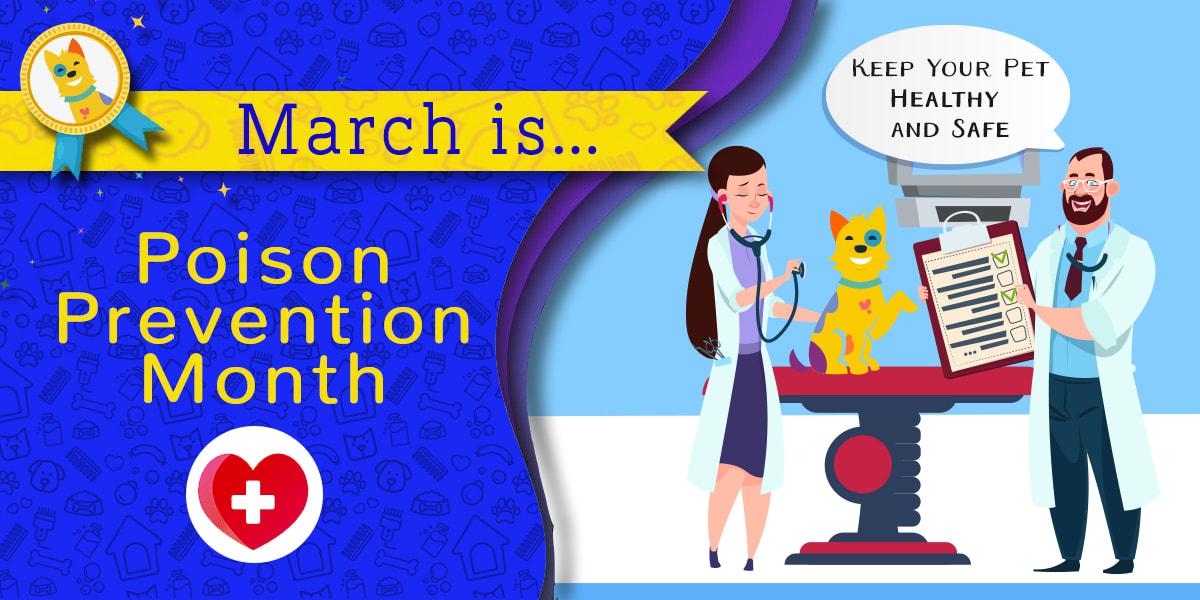
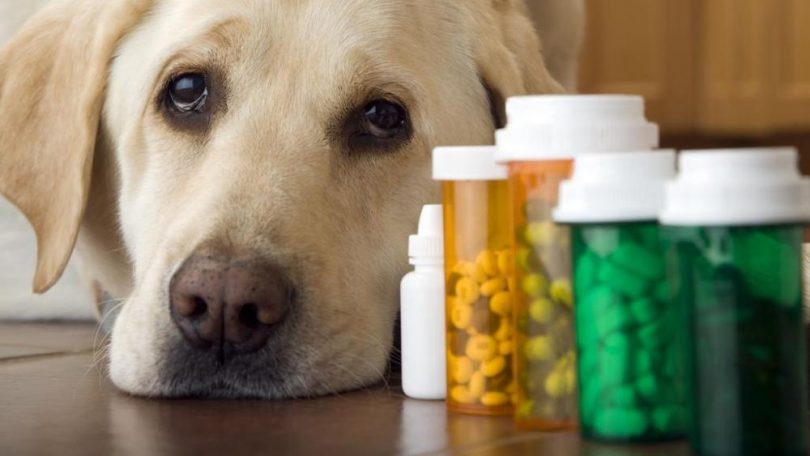
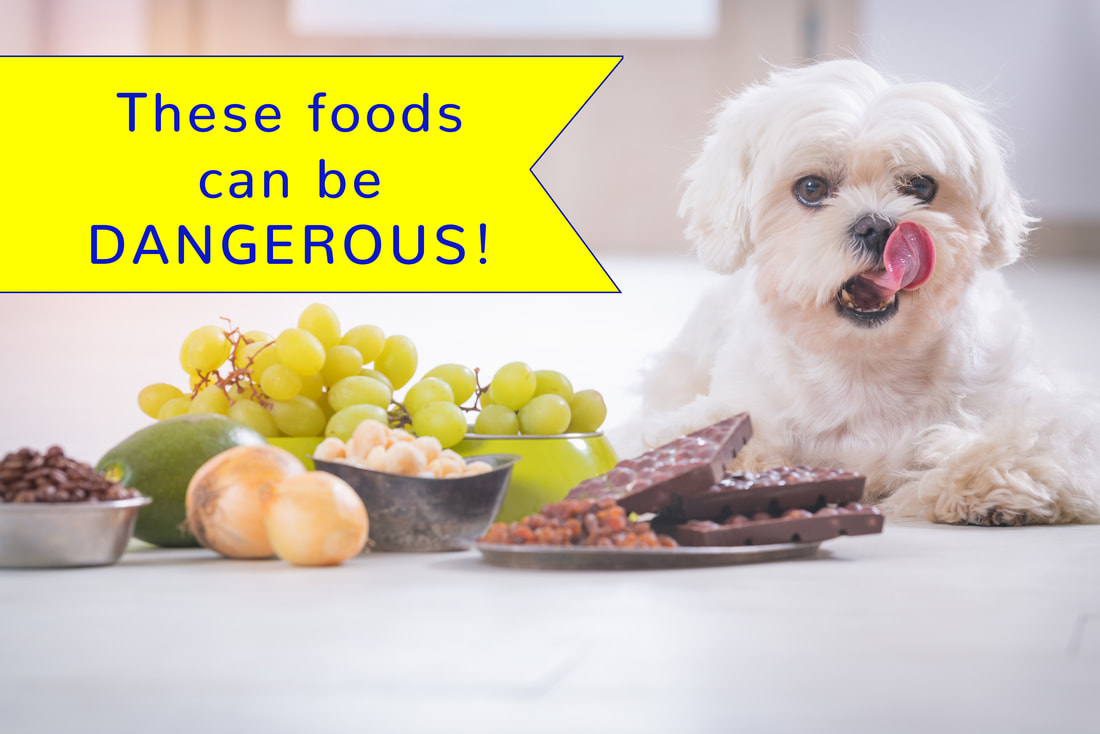
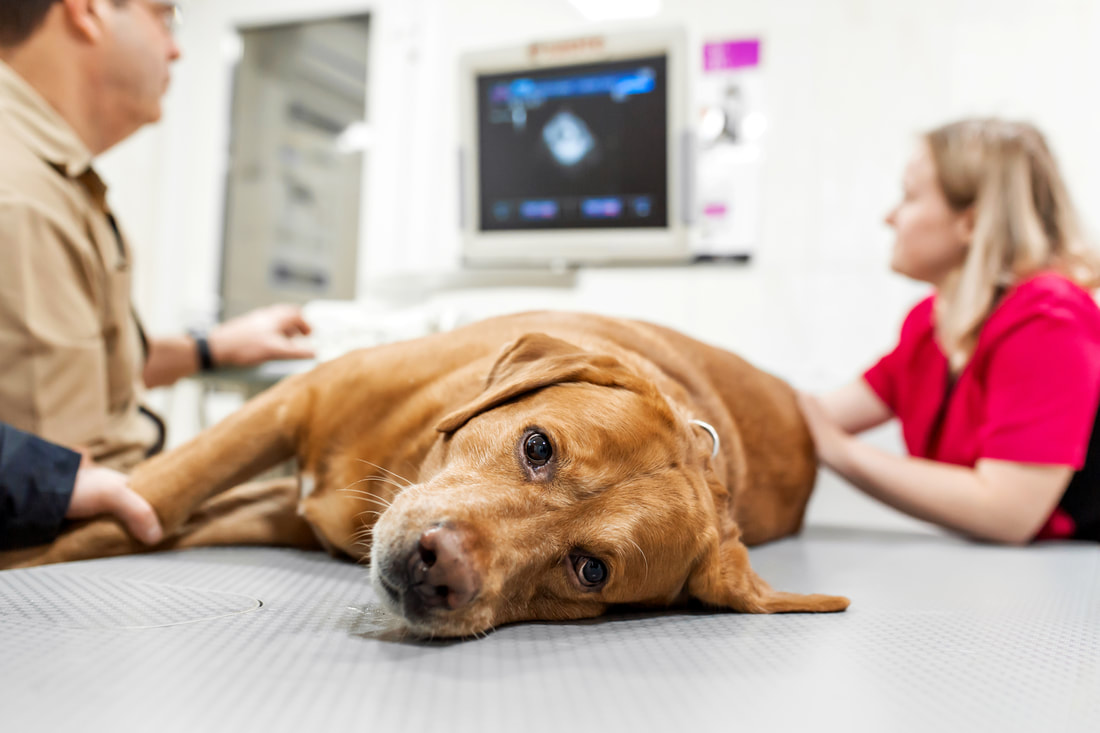
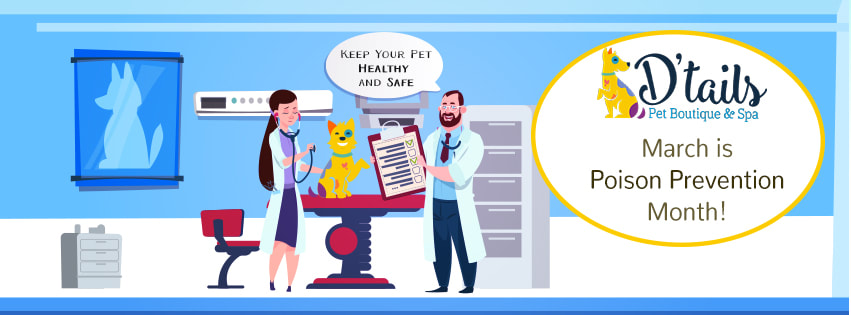
 RSS Feed
RSS Feed